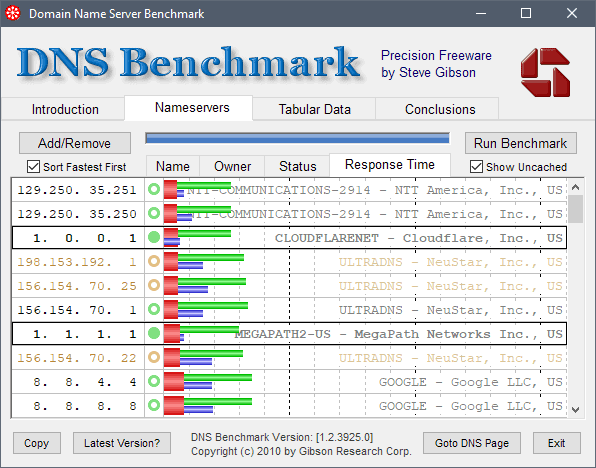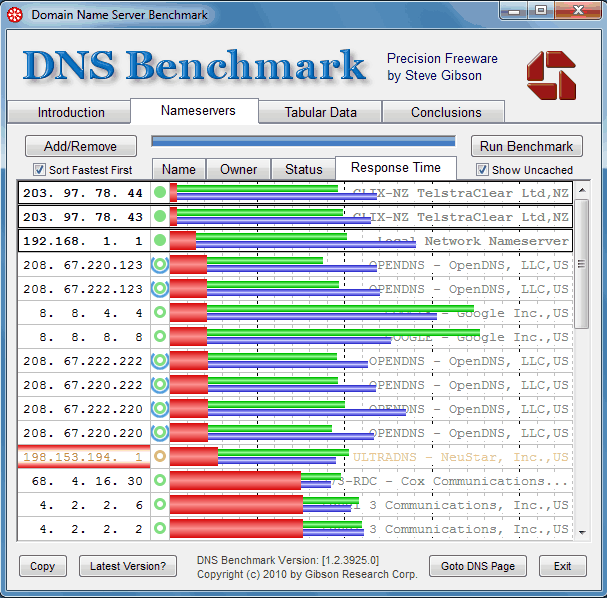

Sudo nano hostname_reference.cfg file to get rid of the warnings in the results.

I commented out any sanity lines within the In my examples I changed the content of the file which changed the test results dramatically as well!įurthermore note that namebench does some kind of sanity checks which are completely outdated. Hence, this file is queried rather than the cache itself. For example, Unbound has a “root.hints” file which holds the A and AAAA records for them. I am not quite sure why but I suppose that this is related to some built-in lists for the root servers into the DNS resolvers. In my test cases (below) this made a difference compared to some other DNS queries. Note that the “cache-hit.txt” file which is used for the cachehit procedure queries the A record of “a.”. While the first one queries different FQDNs out of a built-in Alexa list the other two options test exactly what the names imply: either cache hits (by only querying the same name again and again) or cache misses by querying random names for which the DNS resolver must first look up the record itself before delivering it to the client. Namebench has a couple of input sources while the most interesting ones are “ alexa“, “ cachehit” and “ cachemiss“. For information about its options you must use the -h switch:

Be careful: Without any options it immediately starts testing some (many!) servers. It ships with a GUI but I prefer the usage through the CLI. etc/namebench/ while certain lists that are used by the program are here:
#Best dns benchmark install
You can install it on any Ubuntu-like Linux with Namebench is an open-source DNS benchmark utility listed at Google Code Archive.


 0 kommentar(er)
0 kommentar(er)
